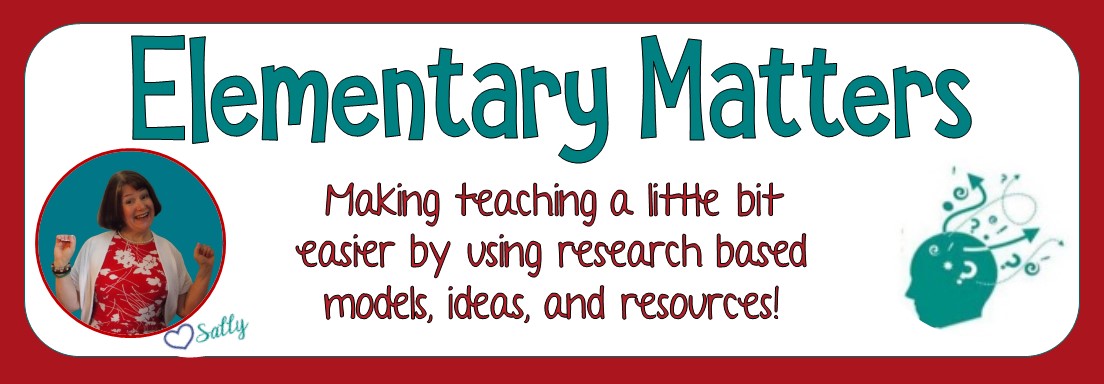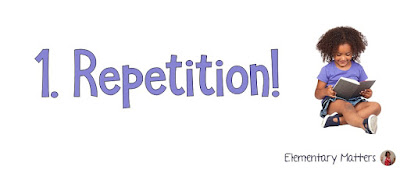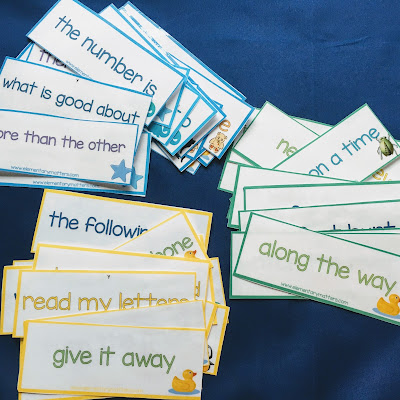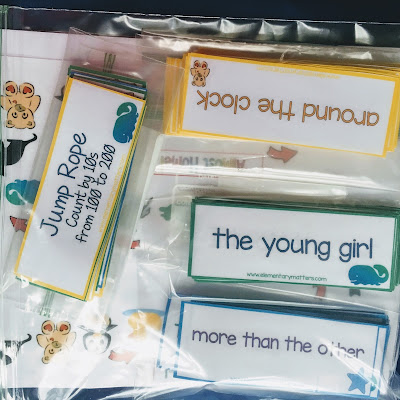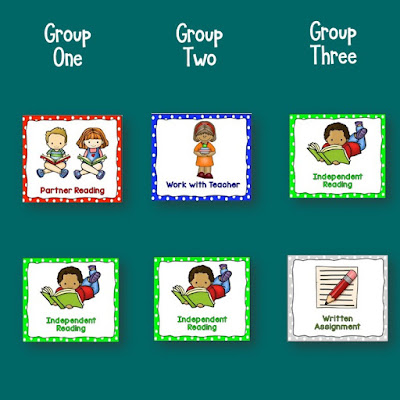I've been fascinated by the brain for years now. I have been reading quite a bit about how the brain works and the best ways to help children learn.
There are basically two types of words for the children to learn. One kind is based on letter sound relationships and letter patterns. In other words, they can be "sounded out." The other kind of word can't be "sounded out" and must be learned by the way it looks: by sight! These suggestions are to help with sight words.
Here are some brain strategies that are easy to implement into the classroom to help the kiddos remember those important sight words.
Practice makes permanent! When the children practice a little bit each day, it will help them remember. It's also a good idea to introduce small amounts at a time. If they need to know the first 100 Sight Words, only give them 10 at a time, then slowly adding on as they master those. Going through their pile of sight words for 5 minutes every day is more valuable than once a week for 30 minutes. Remember when you were in college and cramming for an exam? It didn't work so well, did it. (But somehow we got through it!)
Exercise brings oxygen to the brain, and helps the brain become more receptive to learning. We all know that sitting still for too long makes for cranky, wiggly children (and adults!) Experts say bodies to move every 20 minutes. Bodies of children need to move more frequently than that! A quick walk, a little yoga, or a nice stretch are perfect Brain Breaks for little learners.
Emotions play a big role in memory. If you make it fun, they're more likely to remember. Games make learning fun! A little healthy competition gets the pulse moving and the emotions rolling. It really makes a difference!
Brains are visual! Brains remember colors and other visuals, like cute little pictures. Use color when making word lists or word cards. You can use a variety of colors, but make sure they can be easily read. Make sure the words are appealing for the children.
Experts recommend sight words be practiced in phrases rather than in isolation. Words in isolation don't have much meaning to the children, and brains need meaning. Three or four words in phrases have a lot more meaning and are more likely remembered by growing brains.
I do have some sight word phrases that follow these suggestions. You can find them HERE.
There are built in Brain Breaks.
There are color coded word cards, if desired, with "cute pictures."
There are plenty of color coded phrase cards, again with "cute pictures." The different colors on the borders correspond to the Fry Sight Word level.
There's also a game that can be used to practice the words or phrases! The pictures correspond to the pictures on the individual cards. Each level of words is compatible with the game board, so it's easy to differentiate.
The game board and cards are easily stored in ziplocks!
